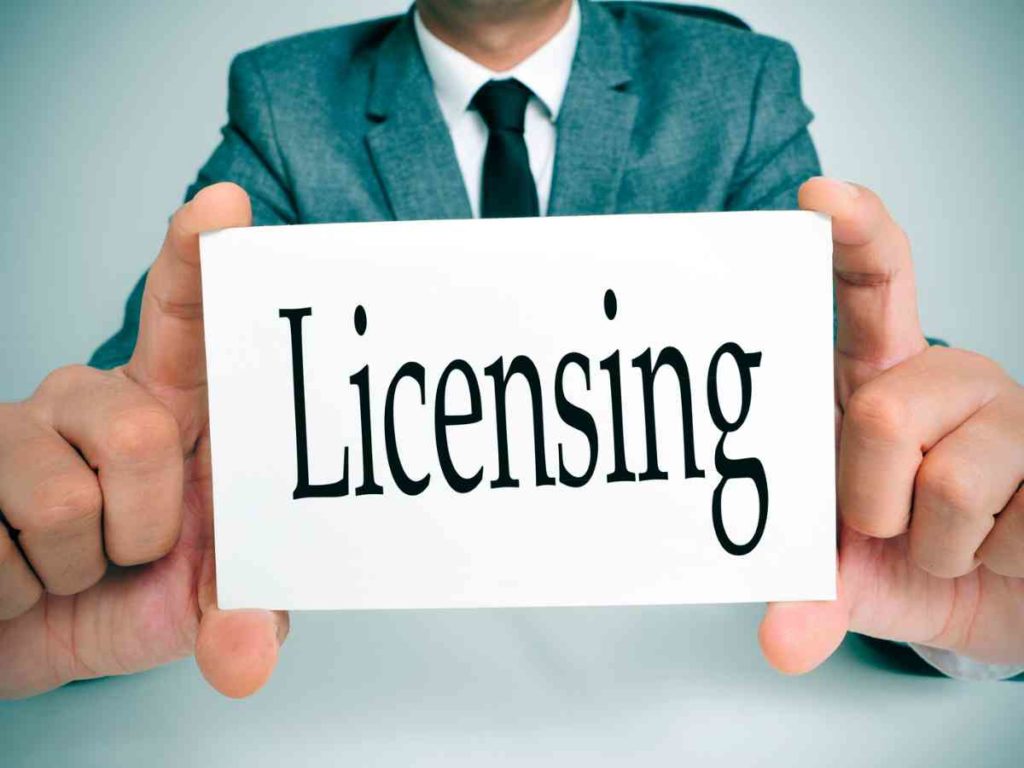- What is Transport Business?
- How to Start Transport Business in India?
- Scope of Transport Business in India
- Best Transport Business Ideas
- How To Create Transport Business Plan?
- Transport Business Kaise Kare
- What is Transport Business Profit Margin?
- Business Registration and Licensing
- Insurance Coverage
- Employment Contracts and Taxation Documents
- How To Get Name For Transport Business?
- How To Hire Qualified Drivers for Transport Business?
- How To Promote Transport Business Online and Offline
- How To Invest in Technology Solutions for Efficiency and Security in Transport Business
- How To Start Network with Other Transportation Professionals
Transporting goods is a great way to start your own business. Whether you’re just starting out or have been in the business for a while, there are many things to consider when getting into this type of venture.
In this blog post, we’ll cover the basics of how to start your own transport business, from setting up a budget to finding customers and everything in between.
What is Transport Business?

Transport business is a type of business that deals in the transportation of goods and services from one place to another. It involves the use of vehicles, rails, ships and aircrafts to transport goods and services from one point to another.
This type of business is highly profitable, and provides an opportunity for entrepreneurs to make money by providing transportation services to their customers. Transport business requires a lot of planning and dedication in order to be successful.
It involves understanding the market, researching regulations and laws, creating a business plan, hiring qualified personnel and investing in quality vehicles. Moreover, efficient management of resources is also essential in order to ensure that the business runs smoothly.
How to Start Transport Business in India?

Step 1 Gather the capital needed to start your transport business

Starting a transport business requires a significant amount of capital. Before beginning, it is important to determine how much money is needed to cover the costs associated with the business, such as fuel, vehicle maintenance, and wages. This can be done by researching operating costs in the area and calculating an estimated budget. Additionally, potential investors should be identified and contacted to discuss investments in the business. It is also important to remember that some form of collateral may be required when securing loans from financial institutions. By gathering the necessary capital ahead of time, entrepreneurs can start their transport business with confidence.
Step 2 Get a registration and license from the Regional Transport Office

Before you can begin a transport business, it is essential to obtain the necessary registration and license from the Regional Transport Office. Depending on the scale of your business, you may require a Goods Carrying Vehicle (GCV) registration or a Passenger Carrying Vehicle (PCV) registration. To get a registration, you must provide details of your vehicle and other paperwork such as insurance documents and proof of identity. Once your registration is approved, you will be issued a license that must be renewed every year.
Step 3 Choose a suitable name and logo for your business

Choosing a suitable name and logo for your transport business is an important step in the process of getting started. It is essential to select a name that accurately reflects the services you offer, as well as a logo that is eye-catching and memorable. Furthermore, it is important to ensure that the name and logo are not already in use by another business. Taking the time to carefully consider all of these elements will help ensure your business stands out from the competition.
Step 4 Purchase or rent vehicles as per your requirement

When starting a transport business, it is important to consider the type of vehicles that will be needed for the business. Depending on the type of services offered, entrepreneurs may need to purchase or rent vehicles such as vans, cars, buses, or trucks. It is important to consider the size and capacity needed for the business and research different options to ensure the right vehicle is chosen. Additionally, it is important to ensure that all vehicles are properly maintained and insured for safety and legal purposes.
Step 5 Acquire necessary certification and permits

Before starting a transport business, it is important to acquire the necessary certification and permits. Depending on the type of transport business being started and the local laws, there might be a need to obtain a business license, operating permit, or other forms of certification. Additionally, it may be necessary to obtain additional permits or insurance for vehicles or other items used in the transport business. It is important to research local laws and regulations to ensure that all necessary certifications and permits are secured before starting a transport business.
Step 6 Find appropriate insurance coverage for your vehicles

When starting a transport business, it is important to make sure you have the right insurance coverage for your vehicles. Make sure you research the different types of insurance available that are specific to transport businesses and speak to an insurance provider to ensure you have the coverage you need. Depending on the type of vehicles in your fleet, you may need a specialised policy that covers all your needs. Additionally, look for any discounts available for having multiple vehicles on the same policy as this can help to reduce costs.
Step 7 Hire experienced drivers and staff members

When starting a transport business, it is essential to make sure that you have experienced drivers and staff members. Having experienced drivers and staff members will ensure that the business runs smoothly and efficiently. Hiring people who have prior experience in the transport industry can also help to minimize potential risks that can occur on the road. Furthermore, experienced drivers and staff members can help to provide a more reliable service for customers, which can help to set your business apart from its competitors.
Step 8 Advertise your services to attract customers

Advertising your transport business is an essential step to reach potential customers. To get the word out, you could use online platforms such as social media, search engine marketing, and other digital methods. You could also use traditional methods such as print materials, radio ads, or TV commercials. Whatever approach you take, make sure you do your research to determine which channels are best for your target market. Additionally, focus on creating a strong brand message that resonates with your audience and clearly outlines the services you provide. With the right advertising strategy, you can ensure that your transport business gets the attention it needs to succeed.
Step 9 Maintain quality service and safety standards
When starting a transportation business, it is important to maintain quality service and safety standards. Building a reputation for providing reliable and safe transport services will ensure customers return to your business. To maintain such standards, it is essential to have the necessary licenses and permits, a well-maintained fleet of vehicles, and to provide your drivers with adequate training. Additionally, regularly conducting safety inspections of your fleet and providing a fair compensation package to your drivers will help ensure that quality service and safety standards are maintained.
Step 10 Keep track of income and expenses to sustain profitability
Tracking income and expenses is an essential part of running a successful transport business. Properly monitoring and managing cash flow is necessary to ensure that the business is profitable over the long-term. Keeping track of income can help business owners identify areas where they can raise prices or adjust rates to maximize revenue.
Monitoring expense reports for small business helps owners identify opportunities to reduce costs and increase profitability. A key component of successful transport businesses is creating and maintaining an accurate system for tracking income and expenses.
Starting a transport business in India is a great way to make money and provide services to the public. To get started, you must conduct research and gain full knowledge of the transport business and industry.
Then, you must formulate a business plan, register your business, and apply for a loan. After that, you will need to get an office space, hire staff, and procure trucks and lorries for your transport business. Once all of these steps are completed, you can commence operations.
When starting a transport business in India, you must also obtain the necessary licenses and permits from the state government.
This will allow you to operate legally. Additionally, you should invest in insurance coverage for your vehicles and employees. Furthermore, you should create employment contracts and taxation documents to ensure that your business is compliant with all laws and regulations.
Finally, you should also consider how to market your business. You could use online load marketplaces to find loads for your trucks, or use Vahak’s load board to find customers. Additionally, you could use social media platforms like Facebook and Instagram to promote your services.
By taking the right steps and using the right marketing tactics, you can successfully start a transport business in India.
Scope of Transport Business in India

The transport business in India has a great potential for growth. India is one of the largest countries with a huge population and this provides ample opportunities for transport businesses.
The transport business in India is divided into two categories – passenger transport and goods transport. Passenger transport includes public transport like buses, trains, and taxis while goods transport includes the transportation of goods like food, beverages, raw materials, machinery, etc.
The Indian government has been encouraging the growth of the transport sector by providing subsidies and tax benefits to small and medium-sized businesses.
There is also a huge opportunity for growth in the sector due to the increasing demand for goods and services. The government has also taken initiatives to promote the use of public transportation in order to reduce air pollution.
The transport business in India is expected to grow at a rapid pace in the coming years due to increasing demand for goods and services. The government is also taking various steps to improve the infrastructure of the transportation sector and make it more efficient. This will further increase the demand for transport services in India.
Transport businesses can also benefit from the increasing use of technology in the industry as it helps in improving efficiency and reducing costs. The use of technology has also enabled companies to track their vehicles and provide better customer service. This has led to an increase in customer satisfaction and loyalty, which are essential for any successful business.
The transport business in India is highly competitive and it is important for businesses to stay ahead of the competition.
Best Transport Business Ideas

Starting a transport business can be a great way to utilize your resources and make money while providing a valuable service to the public. It is important to have an understanding of the industry before getting started, and it is also important to have an idea of the best transport business ideas that are available. Here are some of the best transport business ideas you should consider:
1. Local Courier Service
Providing local courier services is one of the most popular transport business ideas. You can provide same-day deliveries for businesses in your local area.
2. Long Distance Courier Service
Long distance courier services are in high demand due to the rise of e-commerce and online shopping. You can offer courier services to customers who need items delivered from one state to another.
3. Trucking Business
Starting your own trucking business is a great way to get into the transportation industry. You can provide long-distance hauling services for businesses or individuals that need products transported from one location to another.
4. Airport Shuttle Service
Starting an airport shuttle service can be a great way to make money while providing a valuable service to travelers. You can provide shuttle services from airports to hotels or other destinations in your area.
5. Ride-sharing Service
Ride-sharing services, such as Uber and Lyft, have become increasingly popular in recent years. You can start your own ride-sharing service and provide customers with a convenient way to get around town or travel between
How To Create Transport Business Plan?

Creating a transport business plan is essential for any entrepreneur who wants to start a successful transport business. A business plan will help you analyze the potentials of your business, identify the risks associated with it, and set long-term objectives.
It is also important to create a plan that will be easy to understand and give investors and other stakeholders an insight into how your business works.
To create a transport business plan, you should begin by outlining the purpose of the business, its goals, and target market. You should then determine what type of transport services you will offer and how much they will cost. You should also include necessary information such as the estimated budget, capital requirements, staffing needs, and facilities.
It is also important to include a marketing and advertising plan in your business plan. This should include an analysis of your target market, pricing strategies, and promotional activities. Additionally, you should also provide information about your competitive advantage, such as services or features that make your business stand out from competitors in the industry.
Finally, you should outline a financial plan for your transport business. This should include details about the start-up costs, operational costs, revenue projections, and other financial considerations. With a comprehensive business plan in place, you can ensure the success of your transport business.
Transport Business Kaise Kare

Transport business is a lucrative business opportunity for those who want to start their own business. Starting a transport business requires knowledge and expertise in the industry as well as an understanding of the regulations and laws governing the transportation sector.
Before taking the plunge, aspiring entrepreneurs must consider the type of transport business they want to operate. For instance, they can choose to start a road transport business, cargo shipping business, courier service, or logistics business.
They should also consider the type of vehicles they will use, the route they will cover and the services they will offer. It is important to know the local regulations and laws related to transport businesses.
Apart from this, entrepreneurs should also have adequate capital to finance the business operations. They can either obtain funding from financial institutions or raise capital from investors.
They should also develop a comprehensive business plan which should include all the necessary details such as market analysis, competitive analysis, budgeting, and marketing strategies.
Finally, entrepreneurs must hire competent staff and drivers who have valid licenses for the particular kind of transport business they are running.
What is Transport Business Profit Margin?

The profit margin in transport business depends on the size and scope of your business, the number of clients you serve, and the type of services you provide. It can vary from 5% to 40%, depending on how well you manage your operations.
To increase your profit margin, you need to focus on cutting costs and increasing efficiency. You can do this by investing in technology solutions that help you track your vehicles and manage your driver’s performance.
You can also reduce costs by improving customer service, negotiating better rates with suppliers, and using cost-effective fuel sources. By doing these things, you can increase your profit margin and ensure a more successful transport business.
Business Registration and Licensing
Before starting a transport business, it is important to complete all the necessary registrations and obtain all the required licences. Depending on the type of transport business you are planning to start, there are various types of registration and licensing you must apply for.
This includes registering with the Regional Transport Office, obtaining Commercial Vehicle permit, a Motor Vehicle Act license, Goods and Services Tax registration, and a Pollution Under Control Certificate. Ensure that you have all the required documents and licenses in place before you start your transport business.
Insurance Coverage
When starting a transport business, it is important to secure insurance coverage to protect your assets and employees. This coverage will provide protection against liability for any potential accidents or injuries that may occur in the course of providing transport services.
Additionally, it is important to research the insurance requirements for the type of transport business you are running and make sure that you have the right coverage.
You may also want to consider investing in additional insurance policies to cover any additional risks that may be associated with your business.
By investing in comprehensive insurance coverage, you can ensure that your transport business is protected from any potential losses due to accidents or other unforeseen circumstances. Additionally, having adequate insurance coverage will also help to reduce the financial burden on you and your employees in the event of a claim. Overall, adequate insurance coverage is essential for any transport business.
Employment Contracts and Taxation Documents
Employment contracts and taxation documents are an important part of starting a transport business. It is important to ensure that all employees are properly hired and that the right tax documents are filed with the government.
It is also important to ensure that the contracts are fair and in line with local laws. Employers must also understand any local regulations when it comes to payroll taxes and other employee-related documents.
This may include setting up a system to track employee hours worked, vacation time, and other necessary information in order to comply with state and federal regulations. Additionally, employers must make sure to keep proper records of any deductions or withholdings made from employee paychecks in order to remain compliant with local tax laws.
How To Get Name For Transport Business?
When it comes to getting a name for your transport business, it is important to pick a name that reflects your services, conveys professionalism and inspires trust. It is also important that the name you choose is unique and easy to remember. You can come up with your own name or use a business name generator to help you brainstorm ideas.
Once you have a few names in mind, make sure to check for availability online to ensure that the name is not already taken. It is also a good idea to do a trademark search to make sure that the name you choose does not infringe on any existing trademarks. Once you have chosen the perfect name, make sure to register it with the relevant authorities.
How To Hire Qualified Drivers for Transport Business?
One of the most important aspects of a successful transport business is having reliable and trustworthy drivers. Hiring qualified drivers is a crucial step in ensuring that your business runs smoothly and safely.
The first step to hiring qualified drivers is to determine what kind of driver you need for your particular transport business. Do you need a driver who can handle long-haul trips, or someone who is experienced with local routes? It is also important to consider the type of vehicle you will be using for your transport business and ensure that the driver you are hiring has experience with that particular type of vehicle.
After determining the kind of driver you need, it is important to create a job description outlining the responsibilities and expectations for the position. You should also include any certifications or licenses that the driver should possess. This will help you in narrowing down potential candidates and finding the best possible fit for your business.
Once you have narrowed down the list of potential candidates, it is important to interview each candidate thoroughly. Ask questions about their experience, qualifications, driving record, and any other topics that you deem necessary. The interview process should help you determine which candidate would be the best fit for your business.
After selecting the ideal candidate, it is important to provide them with all necessary training to ensure that they are prepared for their role. This includes an onboarding process to familiarize them with your company policies and procedures. Once they are fully trained, it is important to provide
How To Promote Transport Business Online and Offline
Promoting your transport business online and offline is essential for gaining customers and staying competitive in the industry. To do so, you can use a variety of tools such as SEO, PPC, Social Media Marketing, Networking, and more. SEO can help your business appear in searches and help potential customers find you.
PPC is a great way to drive traffic to your website or application. Social media marketing is an effective tool to reach out to customers and build relationships with them.
You can also network with other transportation professionals to gain more exposure. Additionally, you should invest in the right technology solutions to ensure efficiency and security of your business operations.
How To Invest in Technology Solutions for Efficiency and Security in Transport Business
In this digital age, technology is the key to success for any business. Investing in technology solutions can help your transport business in many ways and can ensure that your operations are running efficiently and securely. Technology can help you manage and monitor your fleet, optimize routes, and ensure safety on the roads. It can also help you track cargo and reduce costs, as well as help you market your services to potential customers. Investing in the right technology solutions is critical to the success of your transport business.
One of the most important investments you should make is in a reliable fleet tracking system that allows you to monitor and manage your fleet in real time. A fleet tracking system will provide you with detailed information about where each vehicle is located, as well as how it is performing. You can also use the system to monitor driver performance, ensure compliance with safety regulations, and even optimize routes for efficiency.
Another important technology investment for your transport business is a cargo tracking system. A cargo tracking system can help you manage shipments, track their progress, and ensure that they reach their destination on time. It can also provide you with valuable insights into customer satisfaction and enable you to improve customer service.
Finally, investing in marketing technology solutions can help you reach more potential customers and grow your business. Marketing automation tools can help you automate tasks such as email campaigns and social media management, while advanced analytics tools can give you insights into customer behavior and preferences. Investing in the right
How To Start Network with Other Transportation Professionals
Networking with other transportation professionals is a great way to create a strong and reliable transport business. It is also a great way to learn and share industry knowledge.
You can start networking by attending industry events, joining transportation-related online communities, or simply start talking to other transport business owners.
Having a good network of transportation professionals can provide helpful advice, help you find potential customers, and help you stay up to date on the latest industry trends. Furthermore, it can help you build relationships with other transportation professionals and create a strong network that can benefit your business.

